Macular degeneration research grows human cells in artificial eye
- Published
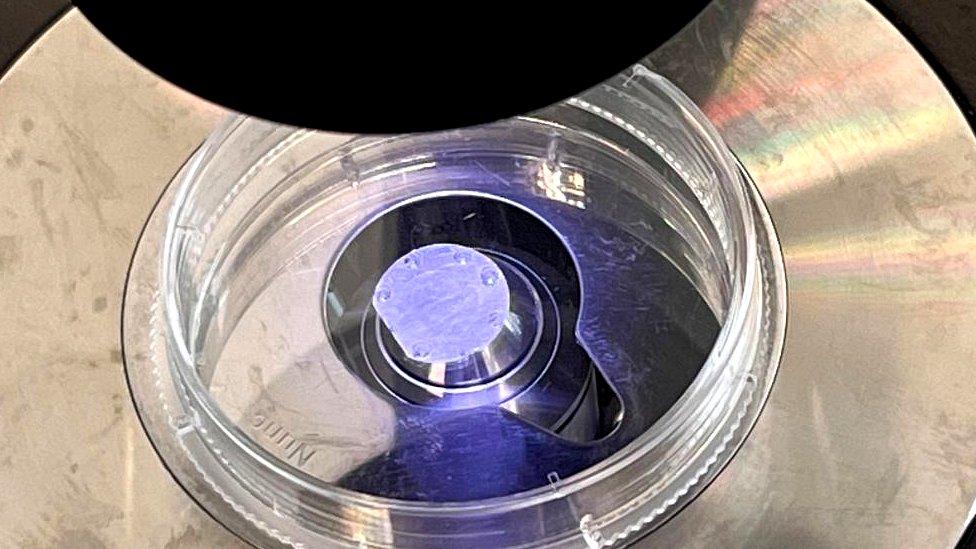
The artificial eye section is 1/25th of the size of a human hair
Researchers have grown and kept human cells alive in a replica eye in a laboratory.
The team at Anglia Ruskin University in Chelmsford, Essex, hope it could be the next step towards treatment for age-related macular degeneration (AMD).
Prof Barbara Pierscionek, who led the research, said it was an "exciting breakthrough".
Macular Society chief executive Cathy Yelf said the development was "encouraging".
Using nanotechnology, a 3D replica was created to support the growth of the cells, much like scaffolding.
The replica mimics the macular layer at the back of the eye.
The university hopes the next step will be to conduct clinical trials.
Prof Pierscionek said: "We've found something that's allowing the cells to grow and be viable in the long term."
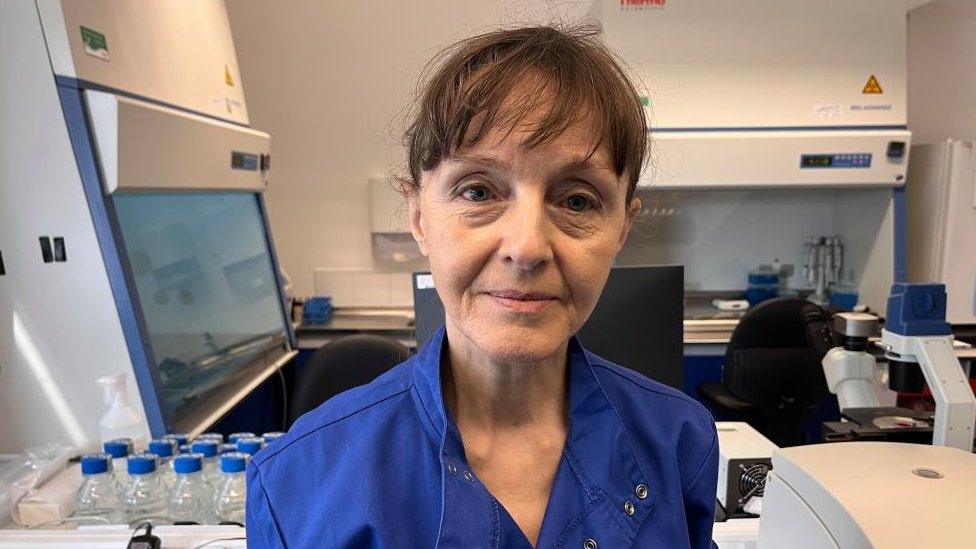
Prof Pierscionek has been researching eye disease for almost three decades
If successful, the artificial layer could be transplanted into humans as a treatment for AMD, for which there is no cure.
The disease affects one in 10 people over 65, external, and affects vision.
In the peer-reviewed study, external, researchers managed to keep the cells alive for 150 days.
"In the past, scientists would grow cells on a flat surface, which is not biologically relevant," Prof Pierscionek said.
"Using these new techniques. the cell line has been shown to thrive in the 3D environment.
"This an exciting breakthrough that could potentially help millions of people."

Mary Davies has been living with AMD for 15 years
Mary Davies, 84, from Downham Market in Norfolk, has dry AMD and can no longer drive or teach macramé - a needlework craft.
She said the condition was restrictive, and welcomed the development.
"I've known people with a diagnosis who thought it was the end of their lives," she said.
"Knowing that this research is going on is wonderful."
According to Macular Society, the disease costs the NHS £1.6bn a year.
Chief executive Cathy Yelf said: "Macular disease is as prevalent as dementia and represents a huge cost, care and societal burden.
"While there still needs to be a lot more work done before we see this being used in humans, this is an encouraging area of research."
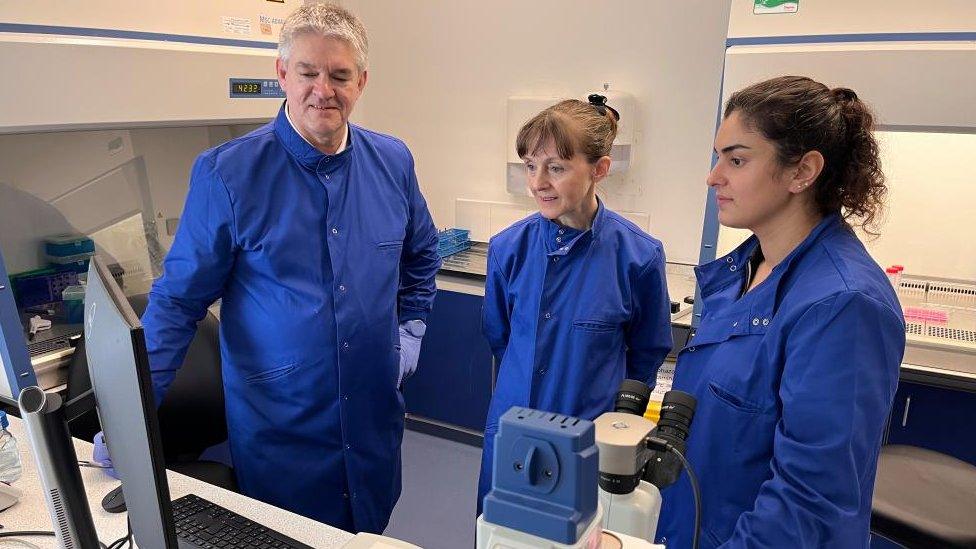
The research team brought together engineers in nanotechnology with eye disease experts

Follow East of England news on Facebook, external, Instagram, external and X, external. Got a story? Email eastofenglandnews@bbc.co.uk, external or WhatsApp us on 0800 169 1830
- Published12 June 2023
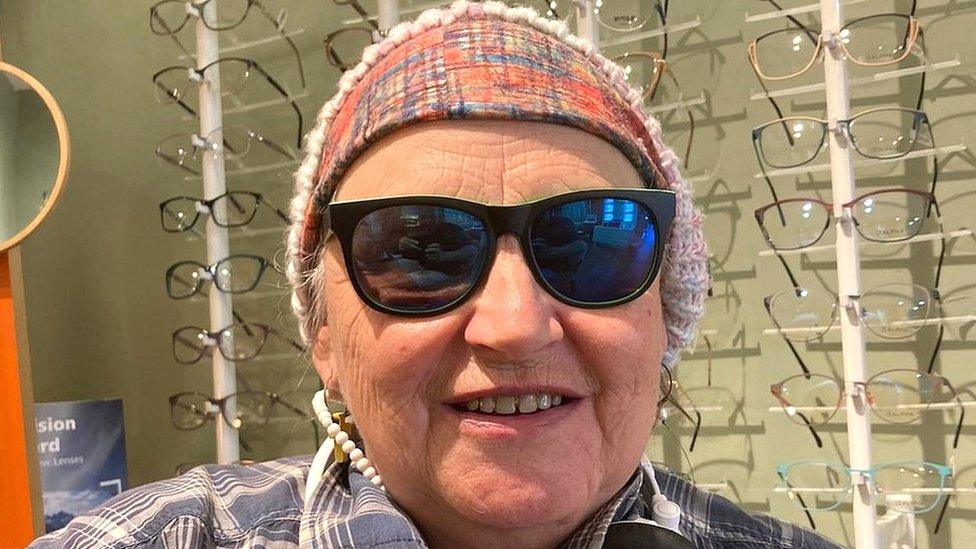
- Published23 February 2020
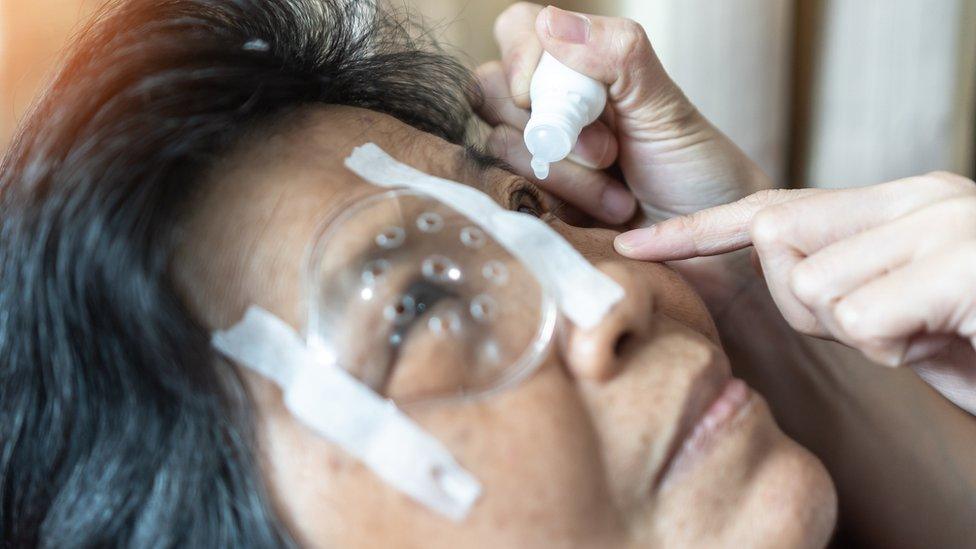
- Published18 February 2019